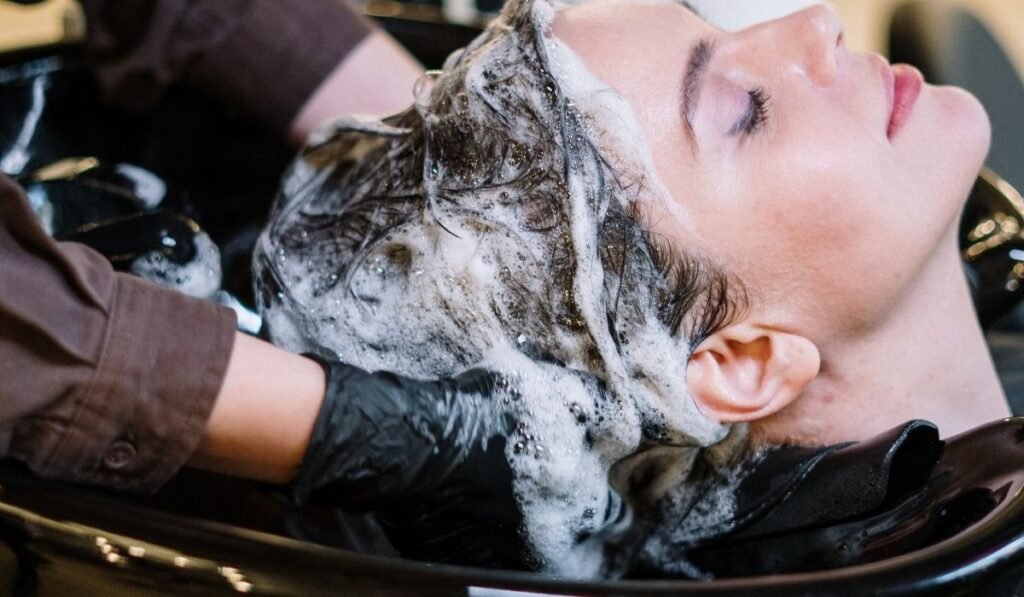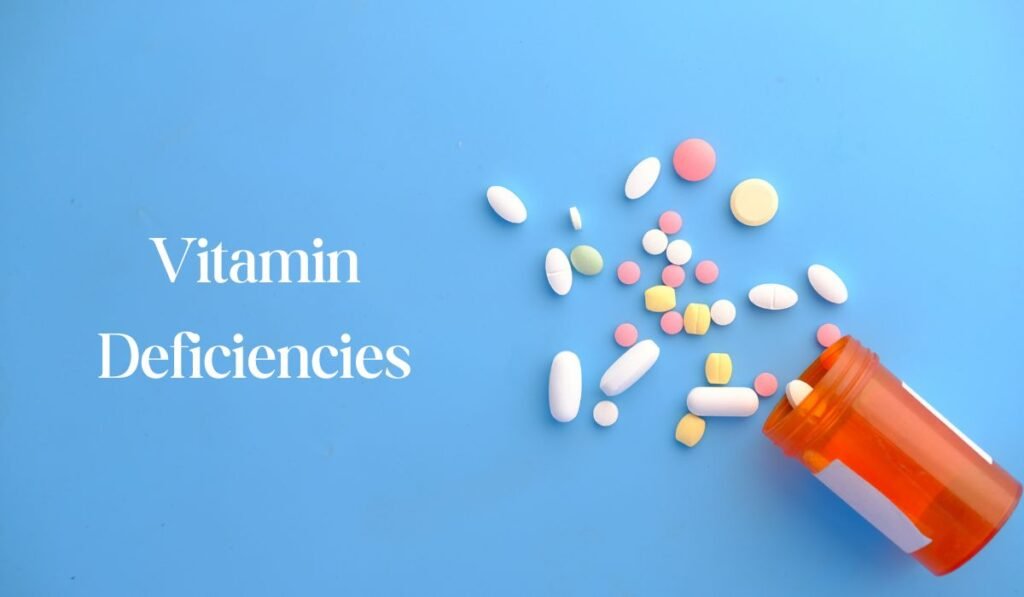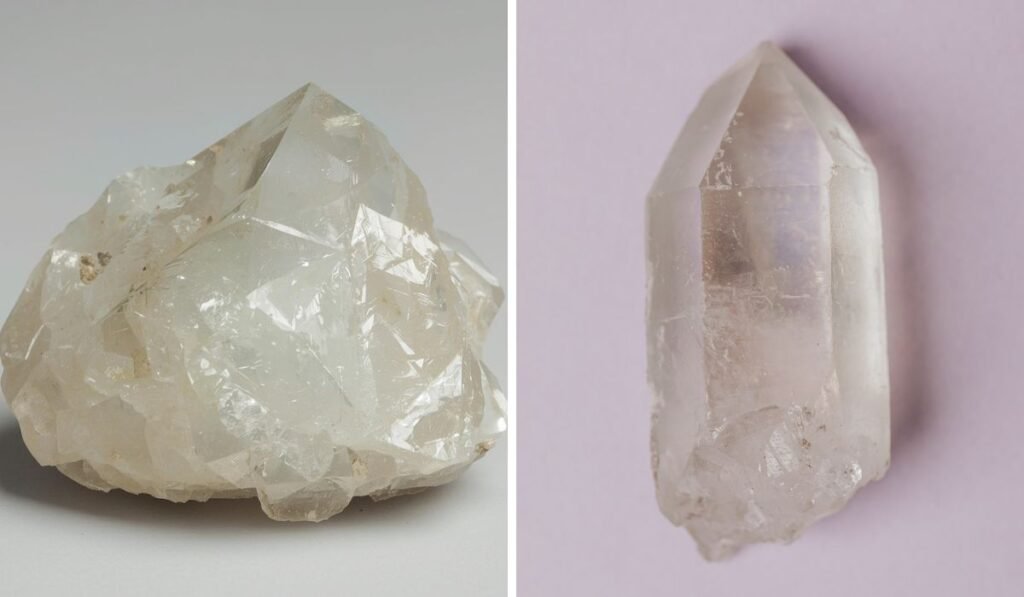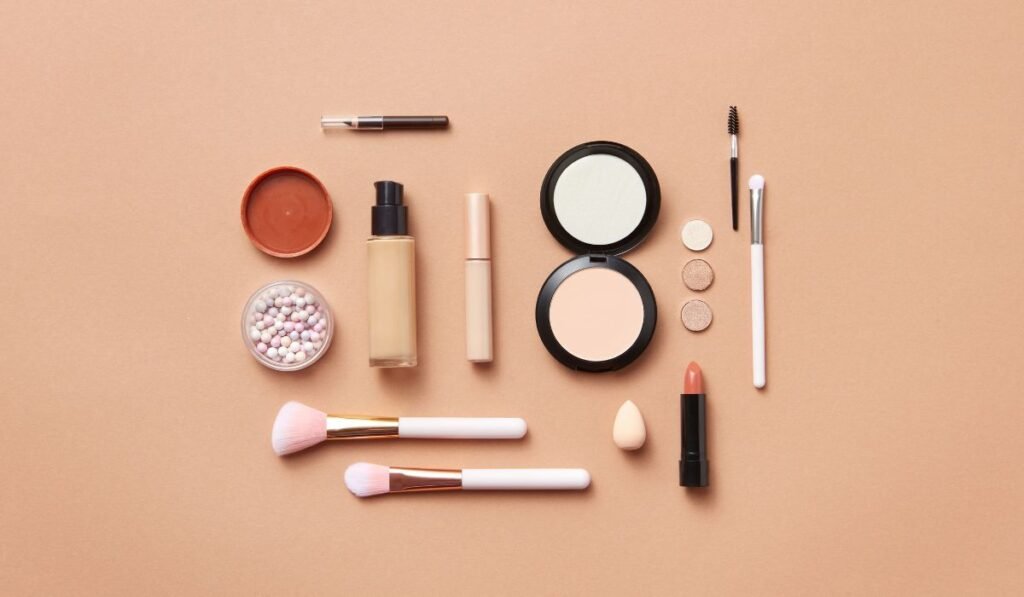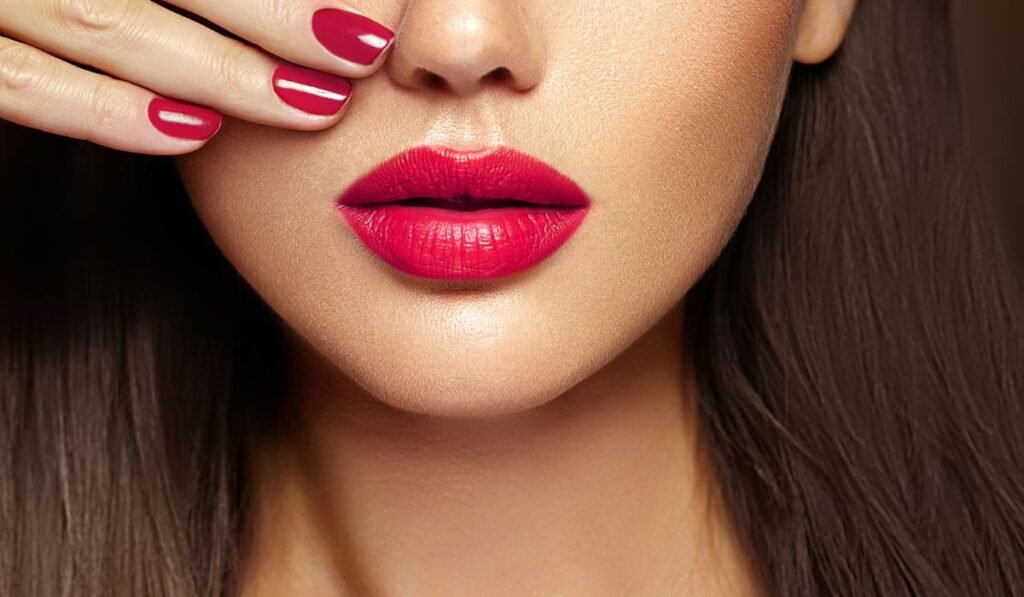“Yes, you read that right. When was the last time you inspected the ingredient list on your shampoo bottle—be it Dove, Pantene, L’Oréal, Patanjali, or Himalaya? If you haven’t, trust me, you’re not alone. But just know: many of these shampoos come laden with toxic chemicals, not benefits. Regular use can weaken your hair roots, leading to dandruff, hair fall, or even alopecia. Let’s find out which shampoos in India are genuinely safe, gentle, and affordable.”
How I Dug into the Shampoo Aisle
I went into this looking at 25 different shampoos—some from nearby supermarkets and others delivered online. I flipped each bottle, took clear photos of their ingredient lists, and slowly pieced together a pattern. You’d be shocked that some of India’s most popular brands actually pack the most toxic ingredients. Even more alarming: products marketed as “herbal” often hide toxic synthetics in fine print.
Based on what I saw, I split them into three groups:
- Classic Toxic Offenders – Brands like Pantene, Dove, L’Oréal, Head & Shoulders.
- Half-Herb, Half-Hype – Brands like Patanjali, Biotique, Ayush.
- Truly Gentle, Natural Picks – Options like Himalaya (select variants), powder shampoos, shampoo bars, and herbal mixes.
What Makes These Shampoos Harmful?
1. Sulfates (SLS, SLES)
- Why they’re used: To create that luxurious foam we all love.
- The trouble: They strip natural oils, causing dryness, irritation, and hair weakening. In some studies, 15% of users experienced mild to moderate irritation from SLS. Elchemy
- Furthermore, SLES can include traces of the carcinogen 1,4-dioxane, a byproduct from its manufacturing. Consumer Notice, LLCThink Dirty® Shop Clean.
2. Silicones (e.g., Dimethicone)
- Why they’re used: To give instant smoothness and shine.
- The issue: They coat hair strands and prevent real nourishment — over time causing dull, brittle hair. Consumer Notice, LLC
3. Parabens & Harsh Preservatives
- Why they’re used: To extend shelf life cheaply.
- The problem: These may disrupt hormones and are increasingly questioned for long-term safety. Consumer Notice, LLC
Real Comparison Table: Popular Shampoos in India
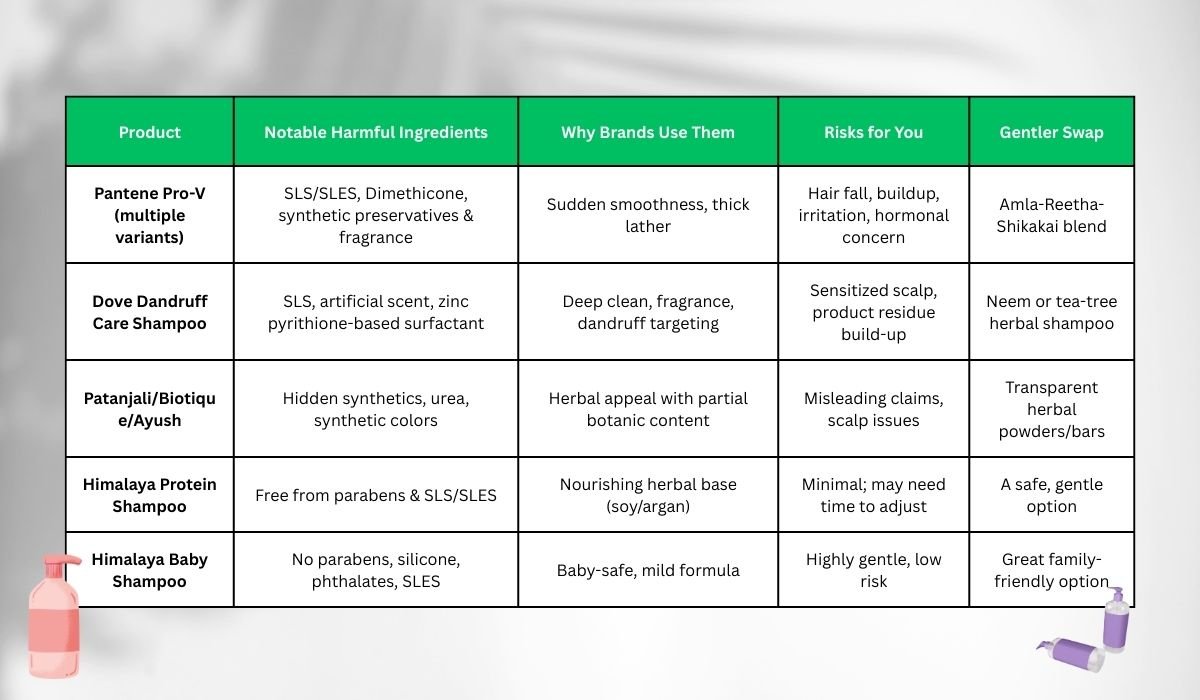
Make the Switch Without Panic
Replacing your shampoo doesn’t mean you must make the plunge overnight. Here’s how you can transition thoughtfully:
- Alternate shampoos – Use your existing shampoo one day, followed by a safer option the next.
- Dilute harsh shampoos – Mix with a bit of water to reduce chemical dose.
- Try powder blends – Think reetha, hibiscus, amla mixes. Just stir with water, apply, and wash off.
- Use oil pre-shampoo – A light coconut or almond oil massage can nourish while helping cleanse gently.
- Stick with it – Some shampoos strip residue for the first 2–3 weeks, making hair feel unfamiliar. Don’t switch back too early.
Check This Out: Must-Read Alternative
While you’re cleaning up your haircare, why not treat your diet too? Look into “The Forgotten Superfoods: Almond, Walnut, Fig & Raisin”. These dry fruits are nutritional powerhouses—and complement your journey to healthy hair from the inside. 👉 Read it here
FAQs
Q1. How do I know if my shampoo is actually damaging my hair?
Many people assume hair fall is “normal,” but if you notice more strands on your pillow, excessive dryness, or an itchy scalp, your shampoo could be the culprit. Dermatologists often point out that sulfates and parabens—common in many shampoos—strip away natural oils, making hair weak over time. A simple check: if your shampoo leaves your hair squeaky-clean (almost rough), it might be too harsh.
Q2. Are sulfates really that bad, or is it just hype?
This isn’t just internet talk—multiple dermatology studies confirm that sulfates (like SLS) are powerful detergents. They clean well but can also irritate the scalp, especially if you wash daily. Think of it like washing delicate clothes with industrial soap—it gets clean but wears out faster. Many people (myself included) notice softer, calmer hair within 2–3 weeks of switching to sulfate-free formulas.
Q3. Can switching shampoos actually repair my hair?
Here’s the truth: damaged hair can’t fully “heal,” but you can stop further damage and improve how it looks and feels. By using gentler, plant-based shampoos, you give your scalp a chance to rebalance oil production and your strands to retain moisture. Over time, most people notice less breakage and more natural shine.
Q4. How soon will I notice results after changing my shampoo?
Don’t expect overnight magic. Most people see small changes (like less frizz or scalp irritation) in 2–3 washes. Real improvements—reduced breakage, stronger roots—take around 6–8 weeks. Think of it like switching to a healthier diet: consistency brings results.
Q5. Do natural or eco-friendly shampoos actually work as well as regular ones?
Yes—if you pick the right one. The biggest myth is that eco-friendly shampoos don’t clean properly. The reality: natural surfactants (like decyl glucoside or coco-glucoside) clean gently without stripping oils. Many users report they wash just as well, but hair feels softer afterward. It’s less about “eco” as a trend, and more about protecting your scalp and planet at the same time.
Final Thoughts: Love Your Hair, Not the Hype
We often get fooled by shiny packaging and fancy claims. But your hair — and your scalp — deserve better. Here’s a small habit that makes a big difference:
👉 Every time you buy a shampoo, flip the bottle and scan the first 5–6 ingredients. If you spot SLS, SLES, parabens, silicones, or artificial fragrances right at the top, that’s your red flag. Ingredients are listed in order of concentration — so what you see first is what’s in there most. Over time, this simple check can save your hair from years of silent damage.
Remember, real hair health isn’t about instant gloss, it’s about long-term nourishment. Choosing natural and transparent formulations is a step towards respecting your body, not just your look.
⚠️ Disclaimer: This blog does not intend to promote or defame any brand. The information shared here is based on ingredient analysis and research from publicly available sources. Our only aim is to help readers make better-informed, healthier choices.
Nikita Palesha is a wellness advocate and eco-conscious writer who shares simple, sustainable tips for everyday living. She’s passionate about mindful choices that support a healthier planet and a balanced lifestyle.
